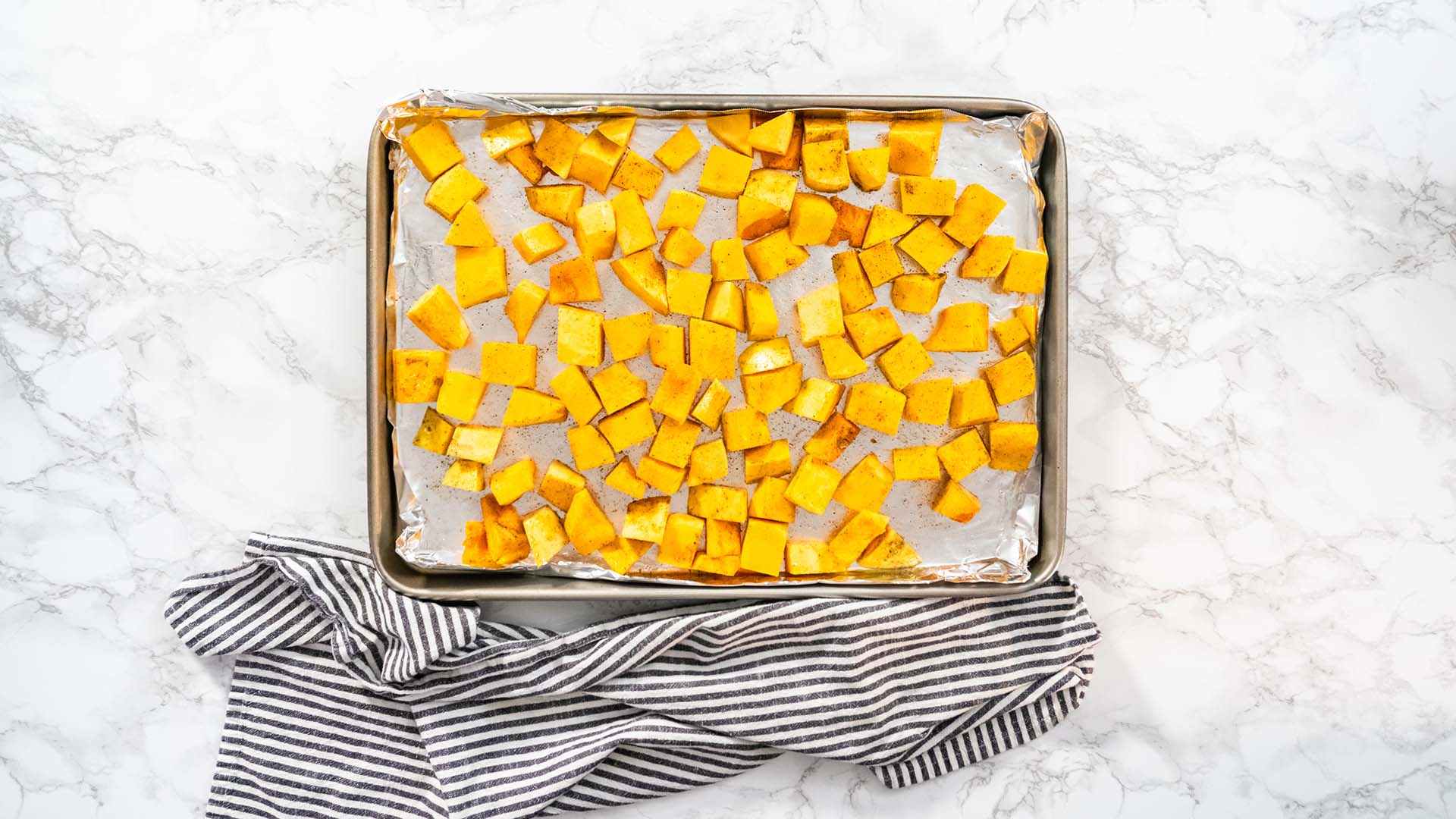Traditional Greek spanakopita—a cherished spinach and feta pie—has found its way into homes worldwide, thanks to its irresistible blend of flaky pastry and wholesome greens. But what happens when this classic recipe takes on fresh, West African-inspired twists? The answer: a vibrant spinach and feta galette, packed with locally relevant flavours and made even more exciting with a zesty lemon and pine nut salsa.
For many Nigerians and Ghanaians, spinach is a staple green, often accompanying stews or rice. While the classic Greek pie uses filo pastry and feta, regional cooks have long experimented with whatever is fresh and available—think ugu (pumpkin leaves), scent leaf, or even ewedu in some creative kitchens. The fusion of spinach, fresh herbs, and creamy cheeses in this recipe provides a springboard for using local greens and seasonal ingredients, making it both adaptable and accessible across Africa.
Spinach and feta galette with lemon and pine nut salsa
Preparation Time: 15 minutes
Cooking Time: 45 minutes
Serves: 4
Ingredients:
- 50g pine nuts (can substitute with toasted groundnut/peanut for a true West African touch)
- Extra-virgin olive oil (or locally pressed palm or groundnut oil for a unique twist)
- 200g spring onions (about two bunches), both green and white parts sliced and thoroughly washed
- 4 garlic cloves, finely minced
- Fine sea salt
- 1kg frozen spinach, thawed in a colander to drain excess liquid (ugu or fresh amaranth leaves, called “green” in Nigerian markets, also work brilliantly)
- 25g fresh dill, chopped, or local scent leaves for a regional flavour
- A dash of freshly grated nutmeg
- 2 tsp dried mint
- 1 lemon, zest finely grated
- 200g feta cheese, crumbled (soft local cheese or wara can replace feta in a pinch)
- 150g ricotta cheese
- 7 sheets filo pastry (about 270g; try using thinly rolled unleavened flatbread or yamarita wraps if filo is hard to find)
- 1 tsp nigella seeds (black cumin or sesame works well locally)
- 60g fresh parsley, finely chopped
Nigerian kitchens, especially in Lagos and Abuja, are increasingly exploring healthier bakes and internationally inspired meals, and this galette is a testament to the trend. According to Lagos-based chef Adaeze Onuora, “Spinach pies have always been a hit, but adding local greens and spices makes it more familiar for families while keeping it exciting.”
Step-by-Step Preparation Guide
1. Toast the Pine Nuts or Groundnuts:
Place the pine nuts (or substitute) in a dry frying pan over medium heat. Toast gently, shaking every minute, until aromatic and golden—about five minutes. Transfer to a bowl and set aside.
2. Prepare the Vegetable Base:
Heat four tablespoons of oil in the same pan. Once hot, add your sliced spring onions, minced garlic, and a teaspoon of salt. Sauté for around five minutes, until softened and green.
3. Add the Greens:
Stir in the thawed (drained) spinach. Cook, stirring, for about ten minutes until any water evaporates. Add dill or local leaves, and cook for an extra two minutes.
4. Mix in Cheese and Spices:
Stir the nutmeg, dried mint, most of the lemon zest, then add crumbled feta and ricotta. Cook on low for another two minutes before removing the pan from heat.
5. Assemble the Galette:
Preheat your oven to 200C (180C if using a fan oven) or about 390F. Lay a large piece of baking paper (roughly 60cm wide) on your workspace. Place a sheet of pastry down and brush lightly with oil. Layer subsequent pastry sheets, rotating each slightly so the edges fan out, oiling every sheet. This creates a beautiful, rustic shell.
6. Add the Filling and Shape:
Pile your spinach and cheese mixture into the centre of the pastry. Gently fold in the edges, pleating as needed, to form a loose, round pie. Brush the top with a little oil, sprinkle on the nigella or black sesame seeds, and bake for 30-35 minutes until golden and crisp.
7. Prepare the Lemon & Pine Nut Salsa:
While the galette bakes, use a knife to cut away the lemon zest and all white pith from your zested lemon. Quarter and slice the flesh thinly. Combine lemon slices, toasted pine nuts, chopped parsley, four tablespoons of olive oil, and a pinch of salt in a bowl.
8. Serve:
Allow the galette to cool for ten minutes. Spoon the salsa over the top and serve warm or at room temperature.
Local Substitutions and Adaptations
One of the beauties of this galette is its adaptability. While frozen spinach is easy to source in Nigerian supermarkets, traditional “green” (amaranth) or fluted pumpkin leaves (ugu) are excellent substitutes. Local feta substitutes (such as fresh cow milk cheese, or wara) offer a creamy, tangy twist reminiscent of the original Greek feta. Those looking for non-dairy options can experiment with blended tofu or beans for a plant-based take.
For home bakers without easy access to filo pastry, you can prepare thin “chapati” or use yamarita wraps, layering and oiling each sheet. The salsa’s pine nuts can be swapped for roasted groundnut, while scent leaf or uziza leaf provides fresh, herbaceous notes in place of dill. These adaptations mean the dish is not only budget-friendly but also rooted in Nigerian flavours.
Expert Opinions and Community Perspectives
According to chef and food scholar Nneka Ogbonna, “Recipes like this open doors between cultures. The Greek origins remind us of the power of migration and trade, while the Nigerian substitutions highlight our creativity.” Data from the Nigerian Bureau of Statistics shows leafy greens are in high demand locally, reflecting a shift towards healthier diets and interest in global food trends. As the West African palate becomes more adventurous, cooks are eager for recipes that blend the familiar with the novel.
Some community voices express hesitance about using imported cheeses, preferring more affordable local alternatives. Yet, the growing access to supermarkets and specialty shops in Lagos, Abuja, and Accra means more kitchens are willing to try global flourishes. The dish’s flexibility—especially with homegrown greens and herbs—makes it ideal for family feasts during Ramadan, Christmas, or as a luxe weekday meal.
Comparisons and Global Appeal
Spinach pies echo across cultures: Moroccan b’stilla, West African egg and leaf pies, even the baked savouries of South Africa’s Cape Malay. This galette unites the structure of the Mediterranean classic with ingredients available in Nigerian or Ghanaian markets, making it both a celebration of culinary diversity and a symbol of kitchen innovation.
Internationally, similar bakes are appearing in cafes and restaurants that champion plant-forward eating, often spotlighting African greens. As Nigerians travel, migrate, and experiment with their diets, recipes like this help tell the story of contemporary West African food—rooted in tradition, but emboldened by global inspiration.
Challenges and Counterpoints
Affordability and accessibility remain important concerns:
- Cost: Imported cheeses and filo pastry can be expensive, but local swaps keep this meal within reach.
- Ingredient availability: Urban supermarkets offer more variety, but rural cooks may stick to indigenous greens and cheeses—which often yield equally delicious results.
- Preference: Not everyone appreciates the tang of feta; blending different cheeses allows for experimentation to taste.
For those wary of Westernised bakes, the galette folds seamlessly into the West African repertoire. It offers a nutritious way to use up greens and presents a lighter, modern alternative to heavier, oilier pies.
Final Thoughts
Whether you stick to the classic Greek inspiration or infuse the dish with your own local flavours, the spinach and feta galette is a celebration of transcontinental cooking. It’s perfect for gatherings, potlucks, or a special family meal—flexible enough to reflect your roots and your inventiveness. And as more Nigerians and Ghanaians embrace healthier, vegetable-laden meals, recipes like this are certain to earn their place at the table.
Have you ever tried a global dish with Nigerian or Ghanaian substitutes? What are your favourite twists on traditional pies or bakes? Share your experience in the comments, and don’t forget to follow us for more inspiring recipes!
Do you have a fantastic twist on this recipe—or a food story from your kitchen that deserves to be celebrated? We want to hear from you! Submit your recipe, cooking adventures, or culinary questions for a chance to be featured on our site.
Email us at story@nowahalazone.com if you’d like your unique food story published, or if you want to sell your story to our platform. For general support, reach out at support@nowahalazone.com.
Be part of our growing food community! Follow us on Facebook, X (Twitter), and Instagram for more local recipes, food stories, and community highlights. Your dish could inspire others—so drop a comment, share your photos, and let’s keep celebrating Africa’s diverse food culture together!










